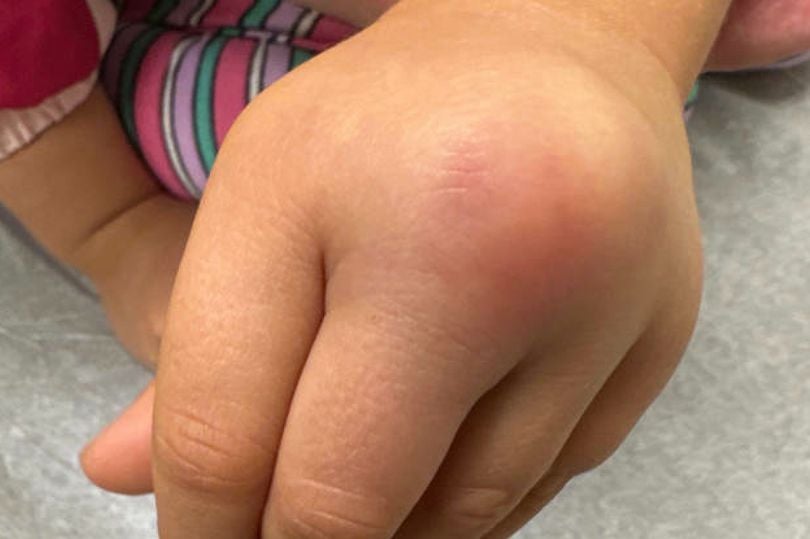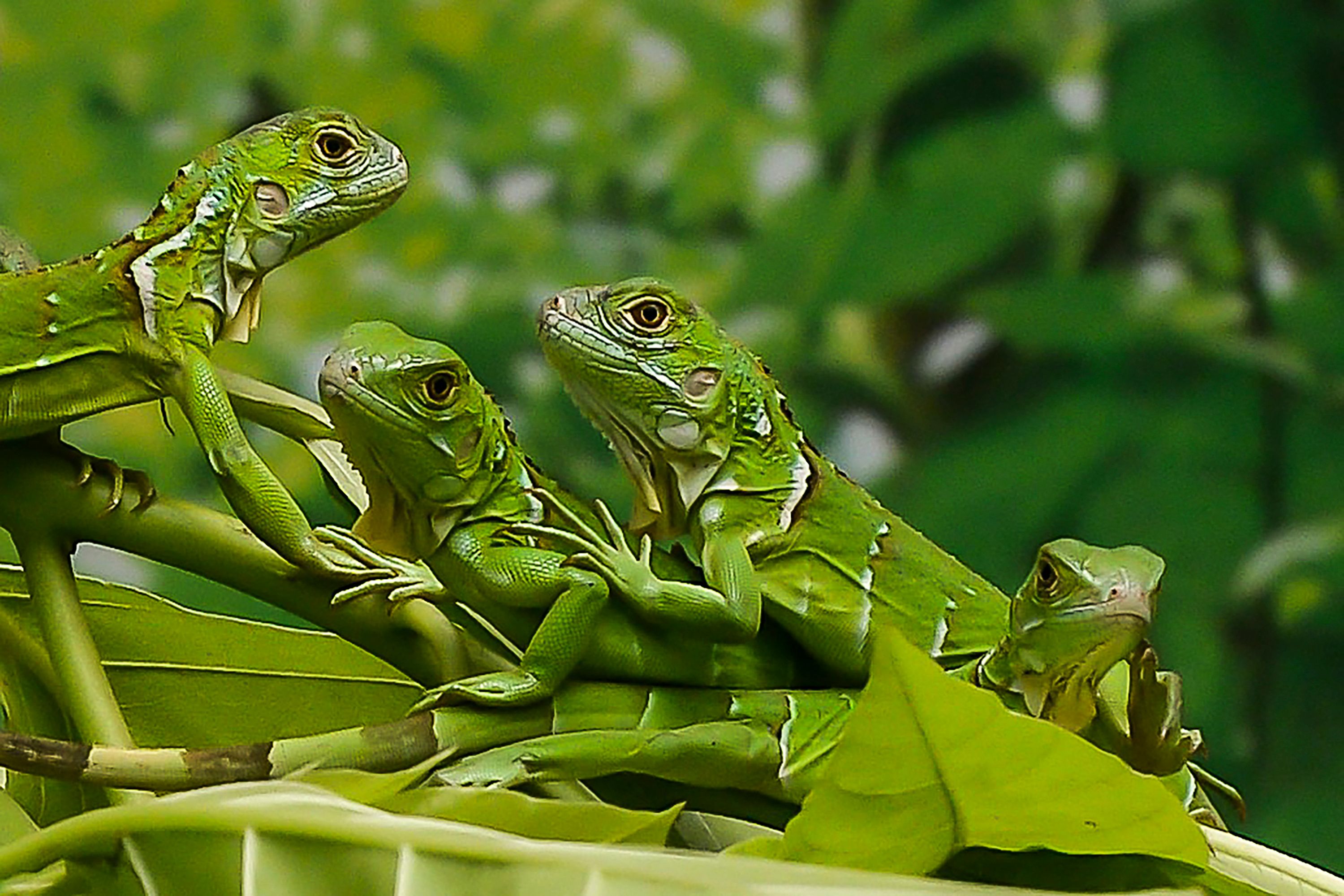Toddler left with rare infection after being bitten by iguana on holiday
Toddler left with Mycobacterium marinum infection after being bitten on holiday

A toddler was infected with bacteria that causes a TB-like illness in fish after being bitten by an iguana while on holiday.
The American youngster was sitting on a beach in Costa Rica eating cake when the iguana ran up and bit her on the back of her left hand before snatching the dessert.
Her hand began to swell and her parents rushed her straight to a local clinic.
The superficial wound on her middle finger was disinfected and she was given five days of antibiotics for potential salmonella exposure. Thanks to the treatment the wound healed quickly without any issues.
However, five months later her parents noticed a small bump on the back of her left hand that gradually became larger. Over the next three months, the skin became red and mildly painful.
The three-year-old was given an ultrasound that revealed a mass under the skin which resembled a fluid-filled lump called a ganglion cyst. However, the location and symptoms did not align with this diagnosis.
When removing the two-centimetre mass the surgeon noticed pus coming from the wound, indicating an infection. After further investigation, they found she had a Mycobacterium marinum infection.
M. marinum can cause a tuberculoisis-like illness in fish.

It has been known to infect humans when skin wounds are exposed to contaminated fresh or salt water, given their abundance in water.
It is resistant to common antibiotics, including amoxicillin, the antibiotic the toddler was given when she was first bitten.
After it was removed she was put onto the antibiotics rifampin and clarithromycin and responded well to therapy.
While organisms that cause infection after dog or cat bites are well known, information about those caused by iguana bites is limited.
A few cases report that the bacteria Serratia marcescens and Staphylococcus aureus are most linked with iguana bites.
Salmonella enterica is also a possibility, given that 75 to 90 per cent of both wild and captive reptiles are colonised with these bacteria.
There are also several studies reporting that domestic reptiles can harbour non-tuberculous mycobacteria. However, the team believes this is the first reported case of the infection following an iguana bite.
Lead author Dr Jordan Mah, of Stanford University School of Medicine in California, said: “M. marinum prefers lower temperatures (30◦C) for optimal growth, and it’s highly likely that the cold-blooded iguana, with body temperatures ranging from 22-37◦C, may sustain these microbes as reservoirs.
“The bite resulted in colonisation by a bacterium rarely found in humans, and demonstrates that iguanas may be carriers of harmful bacteria capable of producing severe infections.
“This may help inform health care professionals of less commonly known bacterial infections following unusual zoonotic exposures.”
The study is due to be presented at this year’s European Congress of Clinical Microbiology & Infectious Diseases in Copenhagen, Denmark, which begins on April 15.
Join our commenting forum
Join thought-provoking conversations, follow other Independent readers and see their replies
Comments


Bookmark popover
Removed from bookmarks